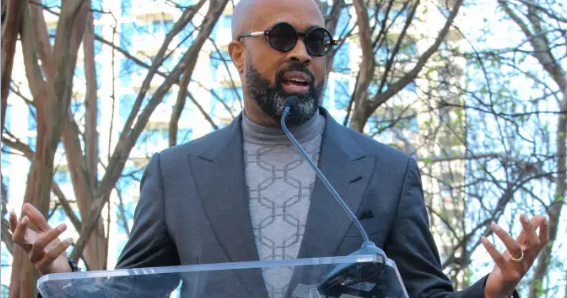Dallas Women Lived Their Own Version Of "The Help"
DALLAS (CBSDFW.COM) - Octavia Spencer won the Academy Award for her supporting role in "The Help." She played a Mississippi housemaid during segregation.
Two women in Dallas say they actually lived the experience.
Louise Marsh, of South Oak Cliff, cooks now because she loves it. Back in the 1960's she cooked to earn a living.
Marsh remembers finding out about a job opening in the Lancaster newspaper.
"I saw an ad. I went and they hired me," she said.
Marsh, now 77-years-old, said the woman she first worked for had two children, a boy and a girl. At the time, they were four and five years old.
Like the women in "The Help," Louise Marsh, was hired as a "domestic" -- a housekeeper. The year was 1963 and Marsh was 28-years-old.
"I had to get them [children] up and feed them," she recalled.
Her days started at 8 o'clock in the morning and ended at 5 o'clock in the afternoon. She worked Monday through Friday for the family for about a year.
Marsh said she quit the job after the children began to absorb racist beliefs – a common hatred and intolerance of the time.
The children Marsh cared for starting calling her the "N" word. She corrected them.
"I said I'm a black lady."
At one point Marsh reported the behavior to the children's parents.
"I told them, one day when they came in, what the children were saying. And, they asked the children why they said it. And they said, 'I didn't say that.'"
The children kept calling her the racist word. After two months, she couldn't take it anymore and quit.
"I told her that I was tired of being called that every day. And, I'm cooking' and bathing' and cleaning' your house!" she said.
It was a time in America when black hired help cooked, cleaned, and raised the children of white families as their own.
"I never raised my two children," explained Callie Wofford.
Wofford, who also lives in South Oak Cliff, is 98 years old now.
She said her mother, who lived in east Texas, raised her daughter and her Godmother raised her son.
Wofford, herself, raised the children of some 20 white families over 40 years.
Unlike scenes in "The Help," Wofford said she worked for good families who allowed to use their restrooms, utensils and beds.
The soon to be centenarian still has a picture of herself, smiling in her maid uniform, making her way through a crowded room with a silver tray of hors d'oeuvres in her hands.
It brought to mind an incident when a friend of one of the families she was worked for questioned her during a dinner party.
"This man came in the kitchen. I was doing the combination salad," she said. "He said, 'You gonna put your hand in that salad? I said, just watch me!"
"Then, I just went down in the salad and started lifting it up," Wofford said laughing.
"He said, when did you wash your hands?" she remembers. "I said, 'Last week! I haven't washed them since!" she said laughing.
The man she worked for stood with her for fair treatment.
"He said, 'You just tell 'em Callie. You don't stand for that kind of stuff!" she said.
But Wofford also remembered the times the families she worked for would test her.
"They would lay money around. They'd lay diamond watches and these things around," she said.
Wofford said when she found valuables lying around, she'd tell her employers.
"I said, 'I put it in the same place. You can go ahead and find it.'"
"If you're honest. It'll prove itself," she said.
Like marsh, Wofford has been a longtime woman of faith. She believes God helped her to find good families to work for. And, she said, she loved raising the children.
She talk them how to walk and talk. In turn, the children would call her "Mama" and even preferred Wofford over their biological mothers.
"I'm blessed by the Lord," she said.
Wofford said she left any notions of revenge to her Savior unlike, Minnie, who in "The Help" used her cooking skills to send a message, which is a message that stands today - that prejudice leaves a bad taste in everyone's mouth.







